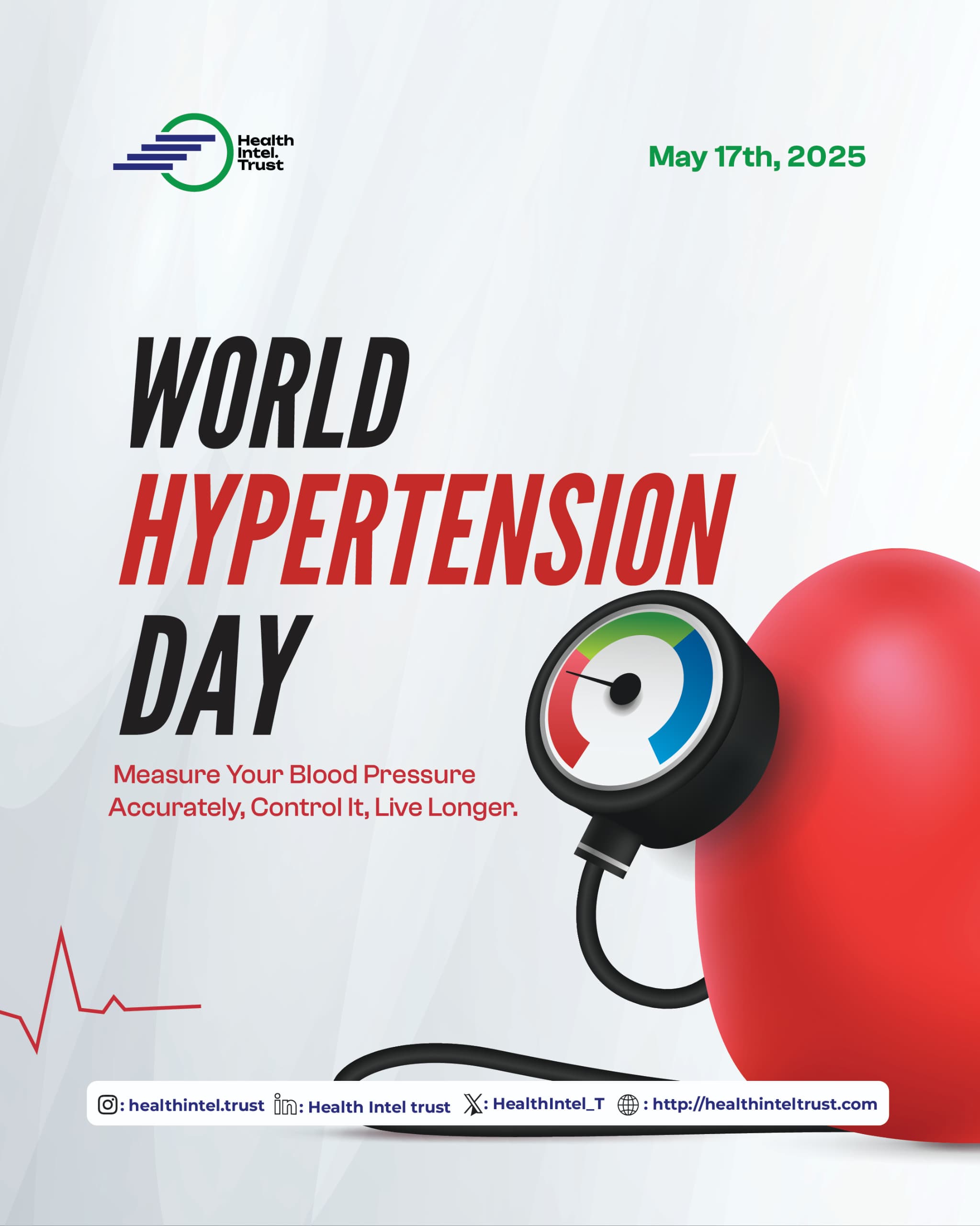
Today, May 17, is World Hypertension Day, a globally recognized day dedicated to raising awareness about a serious but often overlooked health condition that affects both the young and old: hypertension, also known as high blood pressure.
You’ve probably heard it called “The Silent Killer”—and for good reason. This isn’t just a dramatic phrase. It reflects the hidden danger of hypertension. Most people with high blood pressure don’t feel sick. There are often no warning signs, no early symptoms—yet silently, it can cause severe damage to the body and even lead to sudden death if not detected and managed properly.
According to the World Health Organisation, an estimated 1.28 billion adults between ages 30 and 79 are living with hypertension around the globe. That’s about 1 to 2 people out of every 10- a staggering statistic. What’s even more concerning is that half of them don’t even know they have it.
This year’s theme is powerful and simple:
“Measure Your Blood Pressure Accurately, Control It, Live Longer.”
It’s a reminder that checking your blood pressure doesn’t take much time, so early detection, accurate monitoring, and consistent management can save lives.
What Is Hypertension?
Hypertension occurs when the force of blood pushing against one’s blood vessel walls is consistently too high. Over time, this pressure strains vital organs like the heart, kidneys, and brain, potentially leading to:
- Heart attacks
- Stroke
- Kidney failure
- Vision loss
- And even early death
One of the most dangerous things about hypertension is that it often shows no symptoms at all until it’s already caused damage. That’s why regular blood pressure checks are essential even for people who feel perfectly healthy.
What Puts You at Risk?
Several lifestyle and environmental factors contribute to high blood pressure, including:
- High salt (sodium) intake
- Tobacco and alcohol use
- Unhealthy diets (low in fruits and vegetables)
- Physical inactivity
- Stress
- Air pollution
- Genetics or family history of hypertension
- Ongoing stress
Getting diagnosed with high blood pressure isn’t the end of the world. In fact, it’s a chance to take charge of your health. With the right steps, you can control your blood pressure and live a full, healthy life.
Here are 10 simple but powerful tips to help keep your blood pressure in check:
- Maintain a healthy weight – Excess weight strains the heart.
- Exercise regularly – Aim for at least 30 minutes of moderate physical activity most days of the week.
- Reduce salt intake – Avoid salty snacks and processed foods.
- Eat balanced, nutritious meals – Include more fruits, vegetables, and whole grains.
- Limit or avoid alcohol – Excessive drinking raises blood pressure.
- Quit smoking – Tobacco damages blood vessels and raises your risk of heart disease.
- Manage stress effectively – Identify your stress triggers (e.g., illness, financial worries, relationships) and find healthy coping strategies.
- Monitor your blood pressure regularly – Having a home BP monitor can be a game-changer.
- Control blood sugar and cholesterol – These often go hand-in-hand with hypertension.
- Follow your doctor’s advice – Take prescribed medications and attend regular checkups.
Hypertension doesn’t have to define your life—but ignoring it can change your life in ways you never expected. So today, on World Hypertension Day, take a moment to check your blood pressure, talk to your loved ones about it, and commit to healthier habits that supports your heart.
After all, when you control your blood pressure, you’re not just adding years to your life—you’re adding life to your years.
